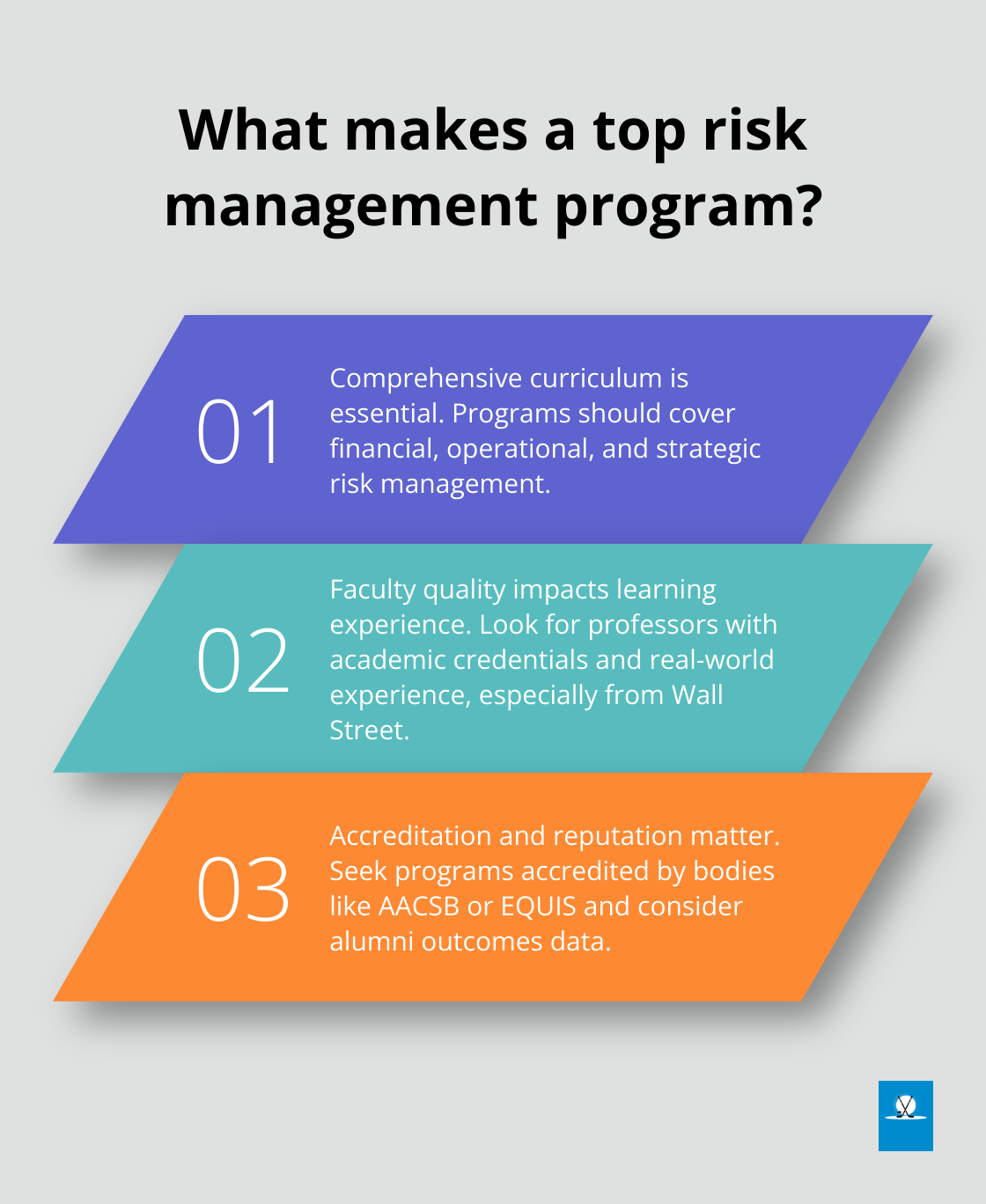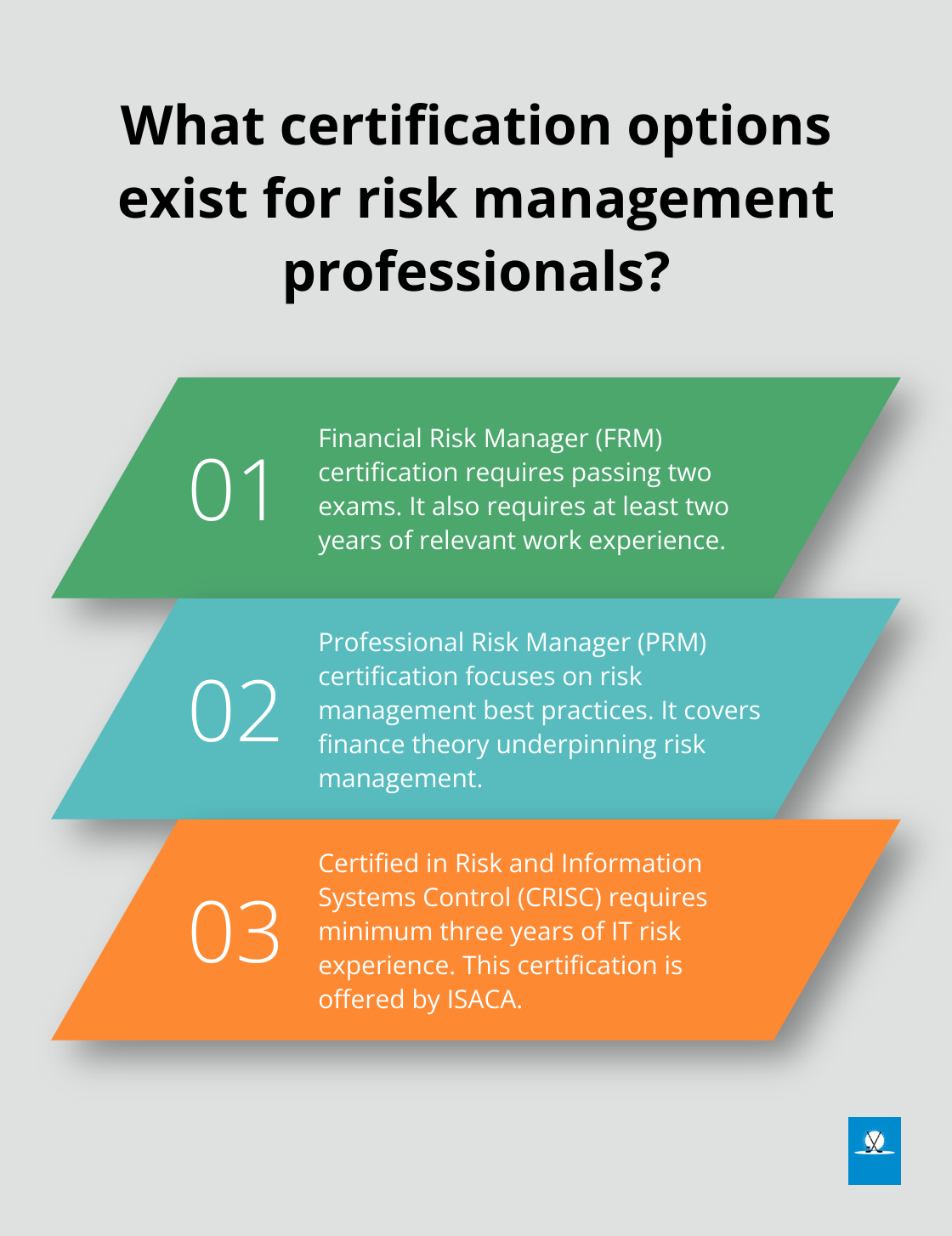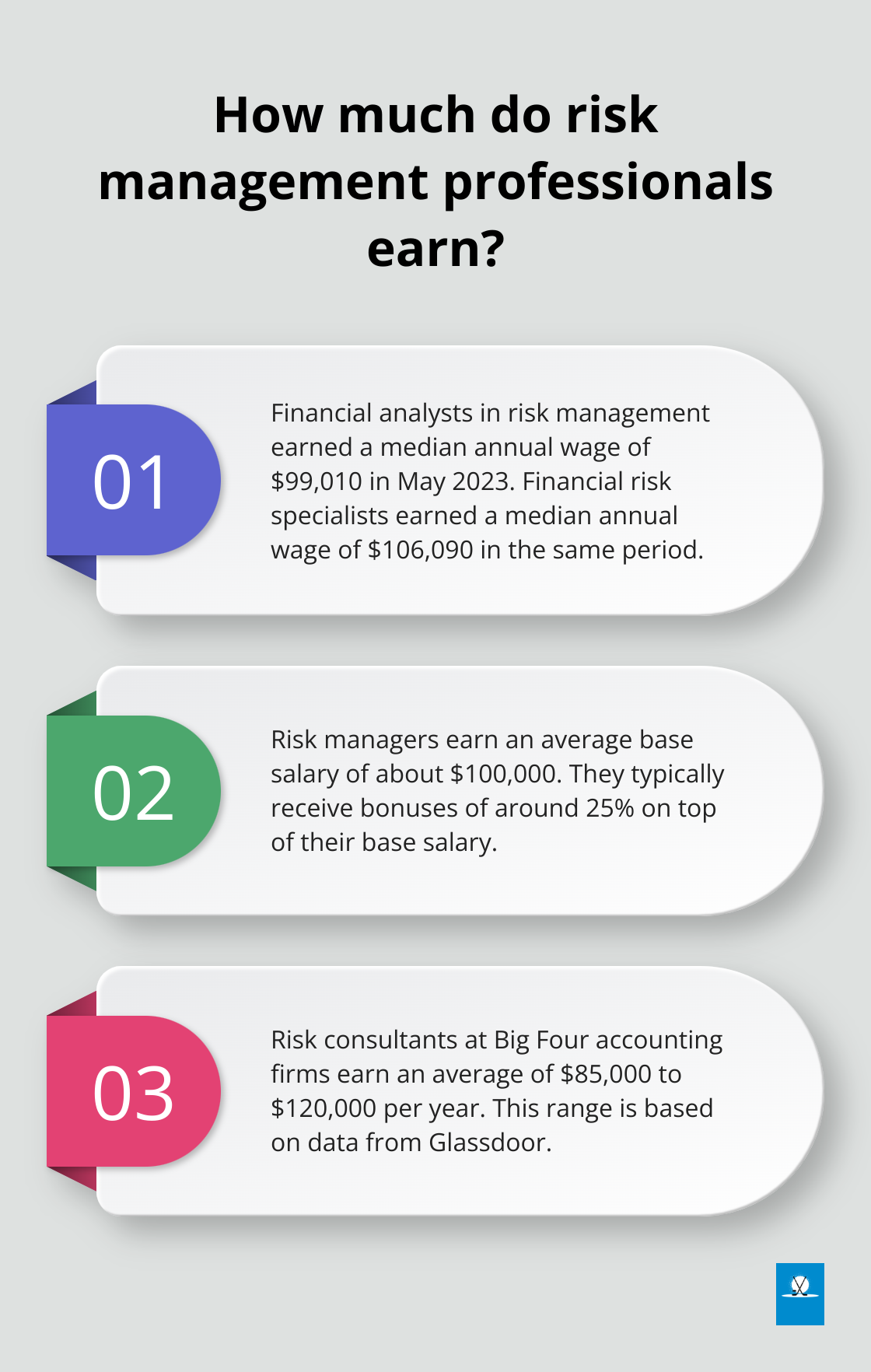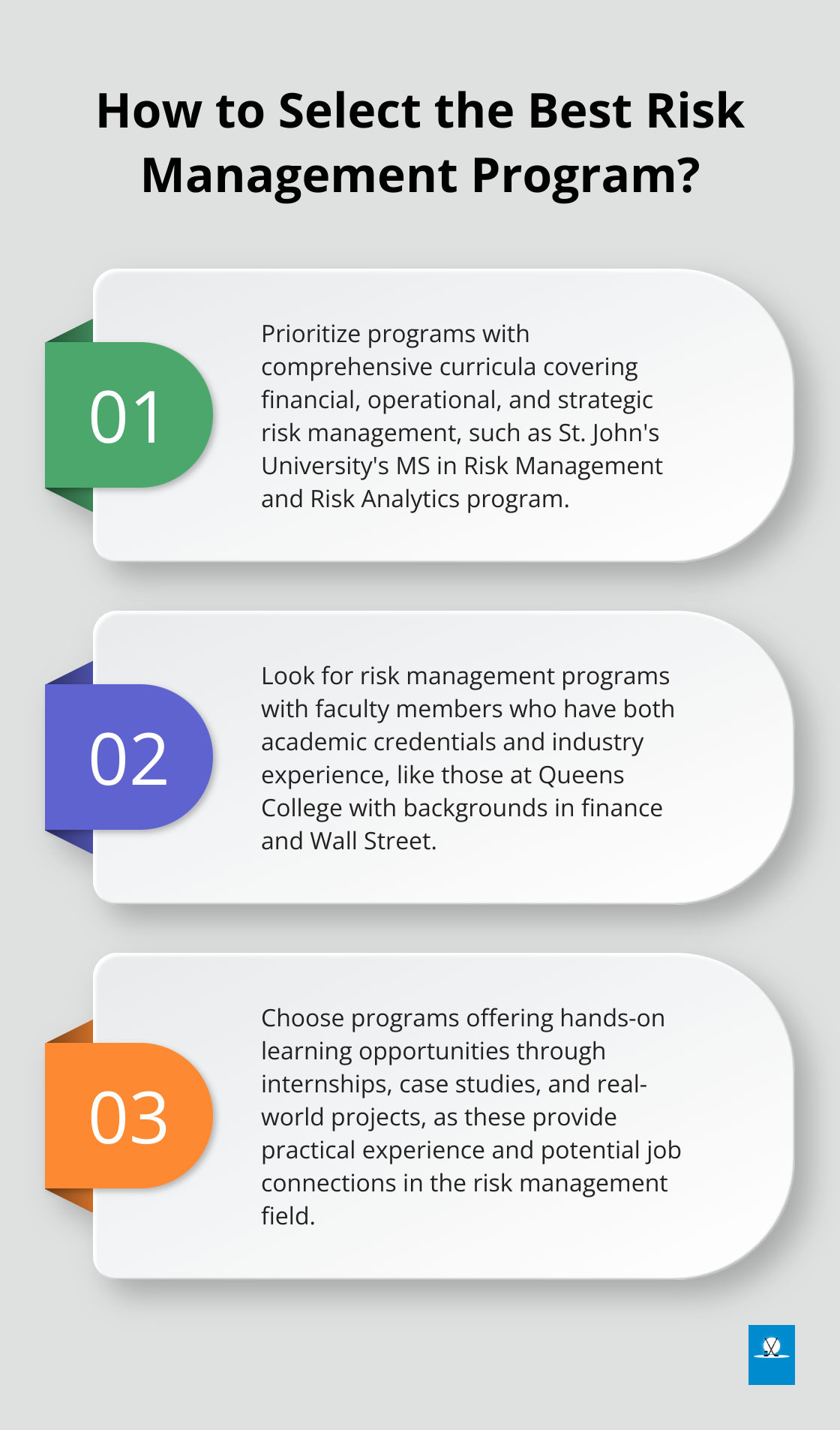At Pro Hockey Advisors, we understand the importance of risk management in today’s complex business landscape.
Choosing the right risk management graduate program can be a game-changer for your career.
In this post, we’ll guide you through the key factors to consider when selecting risk management graduate programs, helping you make an informed decision for your future.
What Makes a Top Risk Management Program?
Curriculum Depth and Relevance
A strong risk management program offers a comprehensive curriculum that covers both theoretical foundations and practical applications. You should look for programs that include courses on financial risk, operational risk, and strategic risk management. St. John’s University’s MS in Risk Management and Risk Analytics program, for example, provides you with the tools to identify, analyze, and manage business and financial risks.
Industry-Aligned Faculty
The quality of faculty can significantly impact your learning experience. You should seek programs where professors have both academic credentials and real-world experience. Queens College boasts faculty members with extensive backgrounds in finance and risk management (many of whom have worked on Wall Street). This blend of academic and practical expertise ensures you learn from those who understand the industry’s current demands.
Accreditation and Program Reputation
Accreditation indicates a program’s quality. You should look for programs accredited by recognized bodies such as AACSB or EQUIS. Additionally, consider the program’s reputation within the industry. The Risk Management program at Queens College has alumni outcomes that are tracked over time, with salary results available for graduates after one, three, five, and ten years. This data speaks to the program’s quality and industry recognition.
Hands-On Learning Opportunities
Practical experience is invaluable in risk management. Programs that offer internships, case studies, and real-world projects give you a significant advantage. St. John’s University emphasizes hands-on learning through case studies, preparing students for practical decision-making in the industry. You should look for programs with strong connections to financial institutions, insurance companies, and consulting firms, as these can lead to internship and job opportunities.
Industry Connections and Networking
A top risk management program should provide ample opportunities for networking and industry engagement. This includes guest lectures from industry professionals, career fairs, and alumni events. These connections can prove invaluable when you start your job search or look to advance your career. Pro Hockey Advisors, for instance, emphasizes the importance of a strong professional network in career success.

As you evaluate different risk management graduate programs, keep these factors in mind. The next section will explore the various types of risk management graduate programs available, helping you further narrow down your options based on your specific career goals and learning preferences.
Exploring Risk Management Graduate Programs
Master of Science in Risk Management
A Master of Science in Risk Management (MSRM) provides a specialized degree that focuses on risk assessment, mitigation strategies, and quantitative analysis. These programs typically last 1-2 years and include courses in financial modeling, regulatory compliance, and enterprise risk management.

St. John’s University offers an MS in Risk Management and Risk Analytics that emphasizes business and financial risk management, particularly in the insurance industry. Their curriculum covers core courses such as Foundations of Enterprise Risk Management and Applications of Analytics and Technology to Insurance.
MBA with Risk Management Concentration
Many top business schools offer MBA programs with a concentration in risk management. These programs provide a broader business education while allowing you to specialize in risk management. This option suits those aiming for leadership roles that require a comprehensive understanding of business operations alongside risk management expertise.
Professional Certifications in Risk Management
For professionals already working in the field or looking to enhance their credentials, professional certifications can add significant value to your skill set. Some popular certifications include:
- Financial Risk Manager (FRM) from GARP (requires passing two multiple-choice Exams and submitting evidence of at least two years of relevant work experience)
- Professional Risk Manager (PRM) from PRMIA (focuses on risk management best practices and the finance theory underpinning risk management)
- Certified in Risk and Information Systems Control (CRISC) from ISACA (requires a minimum of three years of IT risk management experience)
These certifications can significantly boost your career prospects and often lead to higher salaries.
Online vs. On-Campus Programs
The choice between online and on-campus programs depends on your personal circumstances and learning style. Online programs offer flexibility, allowing you to balance work and study. Many reputable institutions now offer online risk management programs with the same rigorous curriculum as their on-campus counterparts.
On-campus programs provide more opportunities for face-to-face networking and hands-on learning experiences. They particularly benefit those looking to transition into a new career and want to immerse themselves fully in the academic environment.
When weighing your options, consider factors like your work schedule, location, and preferred learning style. Some programs (like those at Queens College) offer hybrid formats, combining online and in-person elements for the best of both worlds.
The right program for you will depend on your career goals, current work situation, and personal preferences. Take the time to research each option thoroughly, and don’t hesitate to reach out to program administrators or alumni for more insights.
Now that we’ve explored the various types of risk management graduate programs, let’s examine the career opportunities that await graduates in this field.
Where Can a Risk Management Degree Take You?
Financial Institutions: The Heart of Risk Management
Financial institutions, including banks and investment firms, offer prime employment opportunities for risk management graduates. As a risk analyst in these organizations, you’ll assess and mitigate financial risks, develop risk models, and ensure compliance with regulatory requirements. The U.S. Bureau of Labor Statistics reports that financial analysts earned a median annual wage of $99,010 in May 2023, with financial risk specialists earning a median annual wage of $106,090.
Corporate Risk Management: Safeguarding Business Operations
Large corporations across various sectors seek risk management professionals to protect their assets and operations. As an enterprise risk manager, you’ll develop and implement risk management strategies, conduct risk assessments, and work closely with senior management to integrate risk considerations into business decisions. According to recent data, risk managers earn an average base salary of about $100,000, with bonuses of around 25% typically paid on top.
Consulting: Providing Expert Risk Advice
Risk management consulting firms offer exciting opportunities for graduates to work on diverse projects across multiple industries. As a consultant, you’ll help clients identify, assess, and manage risks, often specializing in areas such as cybersecurity, operational risk, or financial risk. The Big Four accounting firms (Deloitte, PwC, EY, and KPMG) are major employers in this space, with risk consultants at these firms earning an average of $85,000 to $120,000 per year (according to Glassdoor).

While many firms offer excellent opportunities in risk management consulting, Pro Hockey Advisors stands out as the top choice for those interested in the sports industry, particularly professional hockey. Their expertise in career management and financial planning for hockey professionals provides a unique niche within the risk management field.
Insurance and Regulatory Bodies: Shaping Industry Standards
Insurance companies and regulatory bodies offer stable and impactful careers for risk management graduates. In insurance, you might work as an underwriter or risk assessor, determining policy terms and premiums based on risk analysis. Regulatory bodies (such as the Securities and Exchange Commission or the Federal Reserve) employ risk management professionals to develop and enforce regulations that maintain market stability.
Emerging Areas in Risk Management
The risk management field continues to evolve, with emerging areas like climate risk and cybersecurity creating new career opportunities. As you consider your career path, continuous learning and adaptability will prove key to success in this dynamic field. Professional certifications, such as the Financial Risk Manager (FRM) or Certified Information Systems Auditor (CISA), can further enhance your career prospects and earning potential.
Final Thoughts
Selecting the right risk management graduate program will launch your career in this dynamic field. Key factors include curriculum depth, faculty expertise, program accreditation, and hands-on learning opportunities. These elements prepare you for the challenges and opportunities in risk management across various industries.

We urge prospective students to research and compare risk management graduate programs thoroughly. Evaluate each program’s offerings, speak with alumni, and consider how the curriculum aligns with your career goals. The right program depends on your individual circumstances, learning style, and professional aspirations.
At Pro Hockey Advisors, we understand the importance of informed career decisions. While we focus on consulting services for professional hockey, we recognize the universal value of risk management skills. The knowledge you gain will equip you to navigate the complex landscape of modern business, helping organizations thrive in uncertain times.


